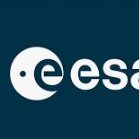Members Can Post Anonymously On This Site
Data-relay system connects astronauts direct to Europe
-
Similar Topics
-
By NASA
In the unforgiving lunar environment, the possibility of an astronaut crewmember becoming incapacitated due to unforeseen circumstances (injury, medical emergency, or a mission-related accident) is a critical concern, starting with the upcoming Artemis III mission, where two astronaut crewmembers will explore the Lunar South Pole. The Moon’s surface is littered with rocks ranging from 0.15 to 20 meters in diameter and craters spanning 1 to 30 meters wide, making navigation challenging even under optimal conditions. The low gravity, unique lighting conditions, extreme temperatures, and availability of only one person to perform the rescue, further complicate any rescue efforts. Among the critical concerns is the safety of astronauts during Extravehicular Activities (EVAs). If an astronaut crewmember becomes incapacitated during a mission, the ability to return them safely and promptly to the human landing system is essential. A single crew member should be able to transport an incapacitated crew member distances up to 2 km and a slope of up to 20 degrees on the lunar terrain without the assistance of a lunar rover. This pressing issue opens the door for innovative solutions. We are looking for a cutting-edge design that is low in mass and easy to deploy, enabling one astronaut crewmember to safely transport their suited (343 kg (~755lb)) and fully incapacitated partner back to the human landing system. The solution must perform effectively in the Moon’s extreme South Pole environment and operate independently of a lunar rover. Your creativity and expertise could bridge this critical gap, enhancing the safety measures for future lunar explorers. By addressing this challenge, you have the opportunity to contribute to the next “giant leap” in human space exploration.
Award: $45,000 in total prizes
Open Date: November 14, 2024
Close Date: January 23, 2025
For more information, visit: https://www.herox.com/NASASouthPoleSafety
View the full article
-
By NASA
(Oct. 25, 2024) — NASA astronaut and Expedition 72 Commander Suni Williams is pictured at the galley inside the International Space Station’s Unity module at the beginning of her day.Credit: NASA Students from Colorado will have the opportunity to hear NASA astronauts Nick Hague and Suni Williams answer their prerecorded questions aboard the International Space Station on Thursday, Nov. 14.
Watch the 20-minute space-to-Earth call at 1 p.m. EST on NASA+. Learn how to watch NASA content on various platforms, including social media.
The JEKL Institute for Global Equity and Access, in partnership with the Denver Museum of Nature and Science, will host students from the Denver School of Science and Technology for the event. Students are building CubeSat emulators to launch on high-altitude balloons, and their work will drive their questions with crew.
Media interested in covering the event must RSVP by 5 p.m., Wednesday, Nov. 13, to Daniela Di Napoli at: daniela.dinapoli@scienceandtech.org or 832-656-5231.
For more than 24 years, astronauts have continuously lived and worked aboard the space station, testing technologies, performing science, and developing skills needed to explore farther from Earth. Astronauts aboard the orbiting laboratory communicate with NASA’s Mission Control Center in Houston 24 hours a day through SCaN’s (Space Communications and Navigation) Near Space Network.
Important research and technology investigations taking place aboard the space station benefit people on Earth and lays the groundwork for other agency missions. As part of NASA’s Artemis campaign, the agency will send astronauts to the Moon to prepare for future human exploration of Mars; inspiring Artemis Generation explorers and ensuring the United States continues to lead in space exploration and discovery.
See videos and lesson plans highlighting space station research at:
https://www.nasa.gov/stemonstation
-end-
Tiernan Doyle
Headquarters, Washington
202-358-1600
tiernan.doyle@nasa.gov
Sandra Jones
Johnson Space Center, Houston
281-483-5111
sandra.p.jones@nasa.gov
Share
Details
Last Updated Nov 12, 2024 EditorTiernan P. DoyleLocationNASA Headquarters Related Terms
International Space Station (ISS) Astronauts Communicating and Navigating with Missions Humans in Space ISS Research Johnson Space Center Near Space Network Space Communications & Navigation Program Sunita L. Williams View the full article
-
By European Space Agency
ESA is taking a significant step towards creating a more digitally inclusive Europe through a new partnership that will bring internet access to the hardest-to-reach areas. Reliable connectivity has become essential in today's digital age, yet for many Europeans in rural villages, mountainous regions, and small islands, dependable internet access remains out of reach.
View the full article
-
By European Space Agency
This compilation of images, captured by the Copernicus Sentinel-2 mission, showcases the characteristic hues of autumn in different European countries.
View the full article
-
By Space Force
The Space Force senior leaders traveled to Europe for meetings with defense and military space leaders from Norway, Sweden, and NATO to reaffirm and strengthen space security cooperation.
View the full article
-
-
Check out these Videos




Recommended Posts
Join the conversation
You can post now and register later. If you have an account, sign in now to post with your account.
Note: Your post will require moderator approval before it will be visible.